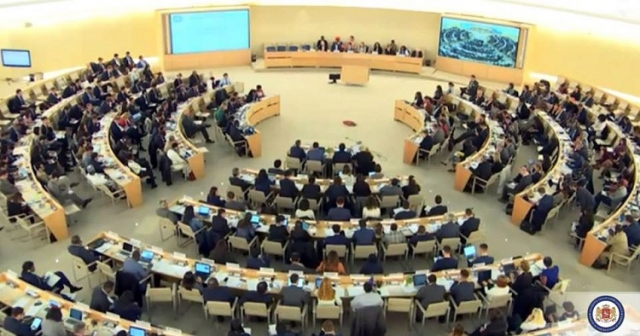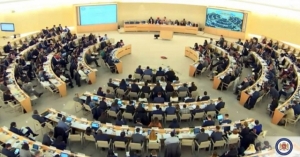UN Human Rights Council Adopts Resolution on Occupied Territories of Georgia
The UN Human Rights Council adopted a resolution on the occupied territories of Georgia - "Cooperation with Georgia" within the framework of its 43rd session.
The Ministry of Foreign Affairs reports that in the resolution, the Human Rights Council reaffirms its commitment to the sovereignty, independence and territorial integrity of Georgia within its internationally recognized borders.
In addition, the UN Human Rights Council recognizes with appreciation the efforts of the Government of Georgia to strengthen democracy, the rule of law and the promotion and protection of human rights.
The UN Human Rights Council welcomes the cooperation of the Government of Georgia with the Office of the High Commissioner for Human Rights, as well as with the international and regional human rights mechanisms.
The Resolution expresses serious concern over the human rights and humanitarian situation in the occupied regions of Georgia with special emphasis on reported kidnappings, arbitrary detention, interference with property rights, restrictions on access to education in one’s native language, free movement and residence, as well as continued discrimination on the grounds of ethnic origin in both regions.
The Human Rights Council expresses serious concern at the continuous process of installation of barbed wire fences and different artificial barriers along the occupation line, and at the negative consequences of the closure of the so-called checkpoints which further aggravates the already difficult social and economic situation on the ground and causes isolation of the population.
The Resolution highlights the importance of the Geneva International Discussions created under the Ceasefire Agreement of 12 August 2008. Furthermore, the Council expresses concern that internally displaced persons and refugees continue to be deprived of the right to return to their homes in a safe and dignified manner.
The document highlights that the Office of the High Commissioner and other international and regional human rights mechanisms have no immediate access to Abkhazia, Georgia and the Tskhinvali region, Georgia. The Council, in this context, recognizes the need for an objective and impartial assessments and periodic reporting of the situation in these regions.
Based on the foregoing, the Council calls for immediate access for the Office of the High Commissioner to Abkhazia and the Tskhinvali regions.
The UN Human Rights Council requests the United Nations High Commissioner for Human Rights to present its reports on the human rights situation in Georgia’s Abkhazia and Tskhinvali regions at the Council’s 44th and 45th sessions.
The Resolution was presented online by the Georgian Deputy Foreign Minister, Lasha Darsalia, who spoke in detail about the grave humanitarian situation in the occupied Tskhinvali and Abkhazia region. He highlighted that amid the global efforts directed against the COVID-19 pandemic, the Russian Federation continues its destructive activities against Georgia, including by employing hybrid instruments and intensifying the illegal 'borderization' process across the occupation line. According to him, the closure of the so-called checkpoints and rejection of medical evacuation has increased the number of fatalities. Lasha Darsalia in this context mentioned the recent death of Jumber Miladze who was denied medical evacuation by the Tskhinvali occupation regime. He stressed that the number of deaths of ethnic Georgians rose to 14 since the closure of the occupation line in September 2019.
Source: MFA Georgia












